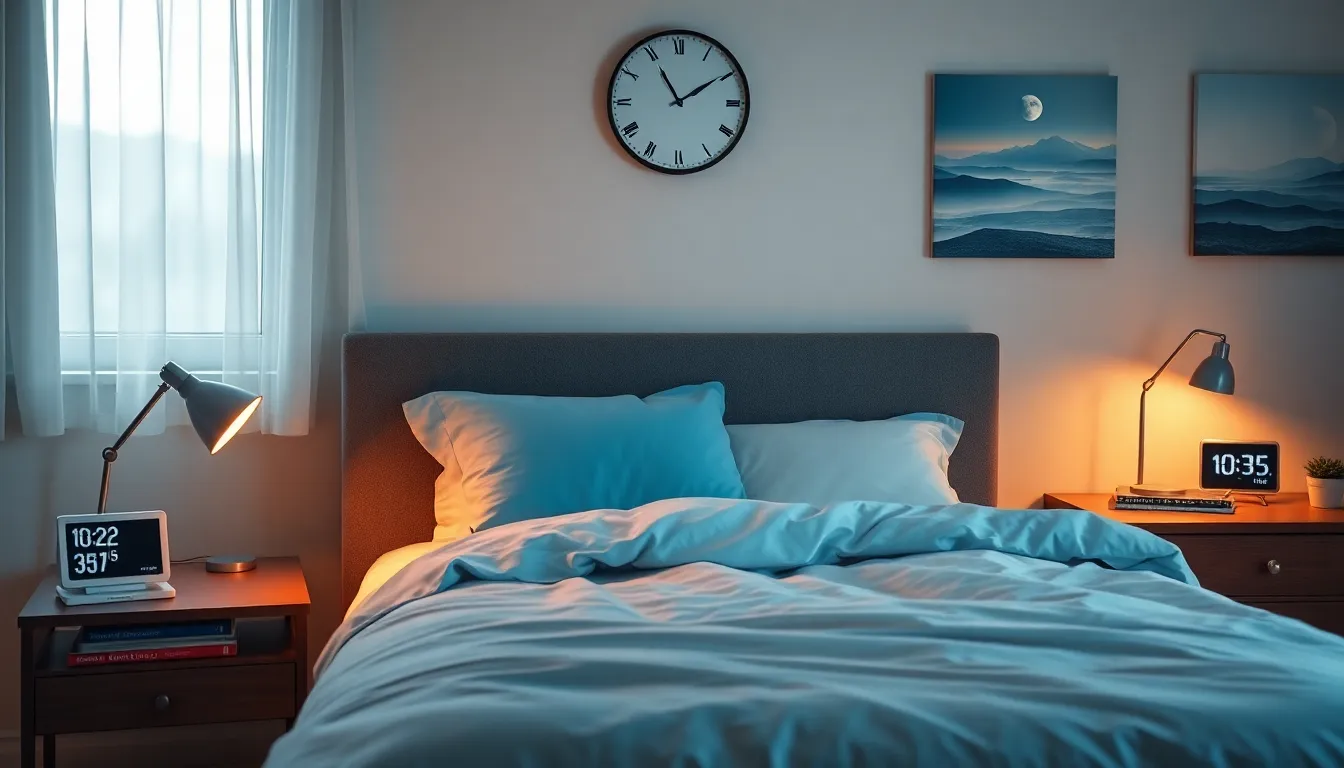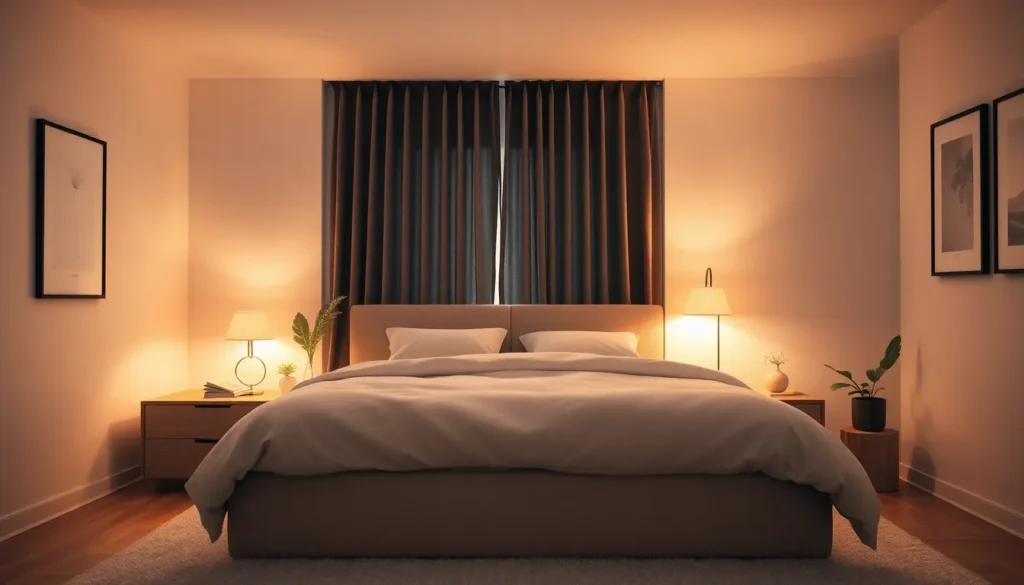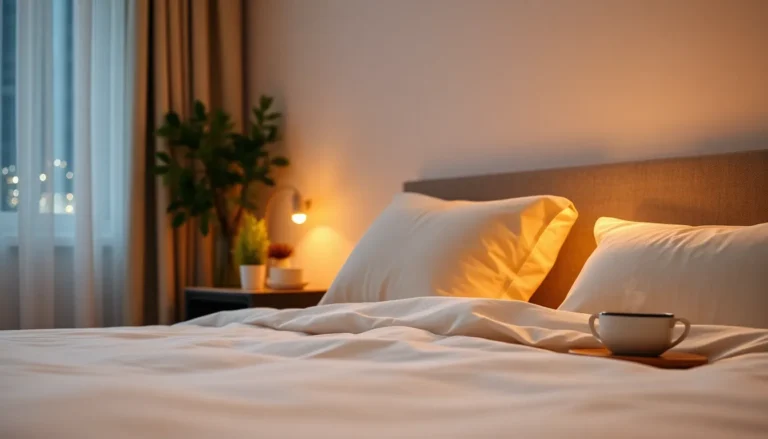Have you ever tried to chase a good night’s sleep, only to find yourself wrestling with your pillow? It’s like playing a game of hide and seek with your dreams. A good night’s sleep isn’t just nice: it’s absolutely essential for functioning at your best. So, if you’re ready to give that elusive quality sleep a run for its money, read on. We’re diving into bedtime basics, unwinding nocturnal tips, and unlocking peaceful slumber in style.
Table of Contents
ToggleThe Importance of a Good Night’s Sleep

When it comes to health, one fundamental pillar stands tall: sleep. Understanding the importance of a good night’s sleep can transform your life in ways you never imagined. So, let’s break down the significance of quality shut-eye.
Understanding Sleep Stages
Sleep isn’t simply a blackout window: it’s a journey through different stages. Everyone cycles through REM (Rapid Eye Movement) and non-REM sleep. During non-REM sleep, the body undergoes critical restorative functions. It’s when healing and growth processes kick in. REM, on the other hand, is where dreams flutter in and out. A lack of proper sleep cycles can leave one feeling groggy and worn out, like trying to drive a car on empty.
Benefits of Quality Sleep
Quality sleep enhances mood, boosts cognitive functions, and improves physical health. Research suggests that good sleep can even help with weight management and bolster the immune system. Think of sleep like recharging your smartphone. Without that recharge, performance dips, and you might just find yourself running out of battery when you need it most.
Tips for Establishing a Bedtime Routine
Creating a solid bedtime routine is like drawing a lovely map to your sleep destination. Knowing the direction keeps you from wandering around aimlessly.
Creating a Sleep-Friendly Environment
To start, let’s talk about setting the scene. A sleep-friendly environment is essential for quality rest. That means keeping the bedroom cool, dark, and quiet. Investing in comfortable bedding can feel like a serious upgrade for any sleepless institution. Consider blackout curtains or a white noise machine. It’s like tucking yourself into a cozy cocoon, where disturbances barely dare to venture.
Limiting Distractions Before Bed
Before diving into dreamland, limiting distractions is vital. Encourage a screen-free hour before bedtime. Whether it’s scrolling through social media or binge-watching the latest series, screens emit blue light that can trick your brain into thinking it’s still daytime. Instead, opt for relaxing activities like reading a great book or floating in a soothing bath. It’s like switching off the engine before parking the car.
Relaxation Techniques to Promote Sleep
Relaxation techniques can pave the way for peaceful slumber. These methods often translate to better sleep and a happier you.
Mindfulness and Meditation Practices
Mindfulness can be as simple as focusing on your breath. It may seem like a fad, but incorporating mindfulness and meditation practices into the bedtime routine can reduce stress and enhance relaxation. Consider guided meditations. These can transport the mind to tranquil landscapes where stress waves are but a distant memory.
Breathing Exercises for Better Sleep
Simple breathing exercises can also work wonders. Try inhaling through the nose for a count of four, holding for seven, and exhaling slowly for eight. This technique not only calms the mind but also signals the body that it’s time to wind down. It’s like putting the brakes on a high-speed chase toward sleep.
What to Avoid for a Good Night’s Sleep
While some strategies set the stage for serenity, others can throw a wrench into the works. It’s important to know what to dodge when aiming for a good night’s sleep.
Caffeine and Alcohol Consumption
Let’s start with caffeine and alcohol. Caffeine is like a mischievous gremlin, popping up just when you least expect it, keeping you wide awake that much longer. Even consuming caffeine hours before bedtime can disrupt sleep cycles. Similarly, while alcohol might seem like a sedative, it can lead to disrupted sleep and less time in restorative phases.
Screen Time and Sleep Interference
And then there’s screen time. As mentioned earlier, the blue light emitted from screens isn’t doing the brain any favors as bedtime approaches. It’s worth putting down the devices and indulging in a screen-free hour to allow the body to transition into sleep mode.
Customizing Your Sleep Schedule
Getting to know one’s individual sleep rhythm is crucial. Just like how no two people are identical, neither are their ideal sleep patterns.
Understanding Your Natural Sleep Cycle
Understanding your natural sleep cycle can enhance rest quality. Some people naturally feel more alert in the morning, while others wake and thrive at night. Discovering personal sleep patterns helps in honing sleep timing to suit individual health and well-being.
Adjusting Sleep Times for Better Rest
After figuring out when you fall asleep best, sticking to a consistent sleep schedule is key. Consistency is like a secret ally in the quest for better sleep. Even on weekends, try to keep the same sleep routine to prevent disrupting your biological clock.



